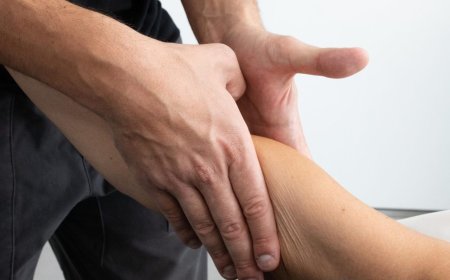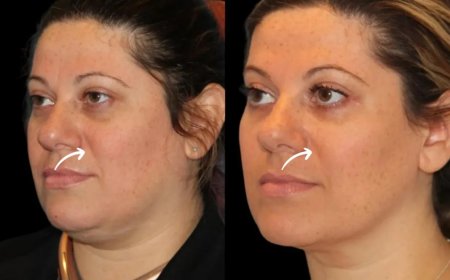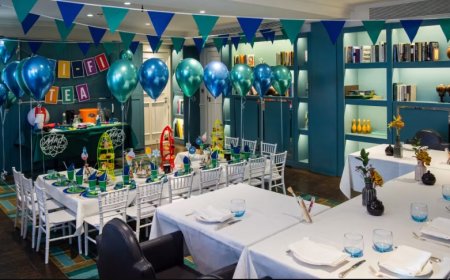When Are Armed Security Guards the Right Choice?
Explore when armed security guards are the best fit, offering high-level protection for high-risk scenarios, VIPs, and sensitive environments.

In a world where threats to businesses, events, and public spaces continue to evolve, the question of whether to deploy armed security guards has become increasingly relevant. While many organizations can manage their security needs with unarmed personnel or electronic surveillance, certain situations call for a higher level of preparedness and deterrence. Understanding when armed protection is appropriate is essential to maintaining not only safety but also public trust and compliance with legal standards.
This article explores the scenarios and conditions that justify the use of armed personnel, as well as the benefits and responsibilities that come with this level of security.
High-Risk Environments and Locations
One of the clearest indicators that a business or property might require armed protection is the presence of heightened risk. This includes locations known for high crime rates, businesses that operate during late-night hours, or areas where law enforcement response times may be slower than average.
For example, convenience stores, gas stations, or dispensaries in urban centers may experience more frequent incidents of armed robbery or aggressive behavior. Similarly, banks, financial institutions, and jewelry stores often house valuable items and cash, making them attractive targets for organized criminal activity.
In such high-threat environments, having a security presence that can not only observe but also respond effectively to a potentially dangerous situation can significantly reduce the risk of loss, injury, or escalation.
Facilities Handling Sensitive or Valuable Assets
Businesses and facilities that deal with high-value merchandise, sensitive data, or classified materials often require a more robust layer of security. This includes warehouses, research laboratories, pharmaceutical companies, data centers, and corporate offices that handle intellectual property.
The stakes are higher in these scenariosnot only in terms of financial losses but also in the potential damage to reputation and trust. An armed guard offers an added level of deterrence that may dissuade internal and external threats from attempting a breach. Their presence sends a clear message that security is being taken seriously, and any unlawful activity will be met with immediate intervention.
However, its crucial for these organizations to balance deterrence with discretion, ensuring that the armed presence does not alarm staff or clients unnecessarily.
High-Profile Individuals or Events
Celebrities, political figures, high-net-worth individuals, and corporate executives often face elevated security risks due to their public visibility or influence. In these cases, personal protection is not just about preventing theft or intrusionits about safeguarding individuals from targeted threats, harassment, or even potential kidnapping.
Similarly, events such as political rallies, product launches, or celebrity appearances can draw large crowds and media attention. These environments are often emotionally charged and may require tighter security control to prevent disruptions or violence.
Deploying armed security guards in such settings ensures rapid response capability in case of an incident. Their presence also reassures the public that measures are in place to maintain order and safety, especially when crowd control is a concern.
Locations with Prior Incidents or Threats
If a business, institution, or property has previously experienced break-ins, threats, or acts of violence, upgrading to armed protection may be a necessary step. Repeat incidents or direct threats against staff or clients elevate the urgency for stronger defense mechanisms.
This is often the case with some schools, hospitals, or government offices that have previously faced protests, threats of violence, or attempted intrusions. While such situations may not warrant permanent armed presence, they often require temporary coverage until the threat has been neutralized or mitigated.
Risk assessments conducted after a critical incident frequently recommend an escalation in protection, which includes the option of assigning armed personnel until further review.
Transportation of High-Value Goods or Cash
Another common situation where armed protection is warranted involves the movement of cash, precious materials, or sensitive documents. Armored transport services typically rely on trained personnel to ensure safe passage, especially across unsecured or long-distance routes.
In these scenarios, visibility and preparedness are key. Criminals targeting transport vehicles often plan their attacks carefully, and an unarmed presence may be insufficient to deter or defend against a coordinated effort.
In addition to guarding the transport itself, armed personnel may also be required at pickup and drop-off points, especially if those locations are in vulnerable or remote areas.
The Legal and Ethical Considerations
The decision to employ armed security guards should never be made lightly. In many jurisdictions, there are strict laws and licensing requirements that must be met before a guard can carry a firearm on duty. These include background checks, psychological evaluations, firearm training, and certifications that ensure guards can respond appropriately in high-pressure situations.
Additionally, businesses must consider the potential liabilities of having weapons on site. A firearm used inappropriately or without justification can lead to legal consequences, damage to reputation, or even civil lawsuits. Therefore, it is essential to work with experienced and accredited security providers who adhere to local regulations and maintain rigorous training standards.
It is also important to educate internal staff and stakeholders about the presence of armed personnel and the specific scenarios in which they are authorized to act.
Public Perception and Business Environment
Not every commercial space is suited for visible armed protection. For example, a retail store focused on providing a friendly and relaxed atmosphere may find that armed personnel intimidate customers or create a sense of unease. In these cases, it may be more appropriate to rely on unarmed guards or plainclothes officers, while still maintaining access to armed backup in emergencies.
Understanding how customers, clients, and employees perceive safety is part of crafting a security solution that aligns with business values and brand identity. Communication, transparency, and clear policies all help ensure that the presence of armed personnel contributes positively to the environment rather than raising concerns.
Choosing the Right Partner for Armed Protection
When opting for this level of security, its critical to partner with a provider that understands the nuances of risk management, compliance, and professional conduct. A quality provider will assess the specific risks of your property, recommend whether armed guards are the best fit, and deploy individuals who are trained not only in firearm handling but also in conflict resolution and customer service.
Secure Scouting Inc specializes in providing tailored security solutions for a wide range of industries. With a team of highly trained professionals and a commitment to safety, integrity, and discretion, the company helps clients determine when armed security guards are the right choiceand ensures that those guards are equipped to handle their duties with excellence and responsibility.
Conclusion
The decision to employ armed protection is not simply about responding to fearit's about proactively assessing risk and acting in the best interest of safety, operations, and peace of mind. Whether it's securing high-value assets, managing public events, or protecting individuals with elevated risk profiles, armed security guards provide a critical layer of defense when the stakes are high.
However, this option should always be approached with thoughtful consideration, legal compliance, and a partnership with professionals who put safety above all. When chosen and implemented correctly, armed security becomes a strategic asset that supports business continuity and protects what matters most.


























